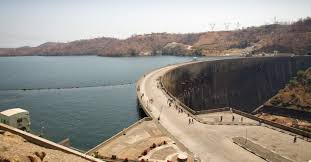Delivery of Gwayi-Shangani pipes starts next week
DELIVERY of the first batch of the glass fibre reinforced polyester pipes (GRP) being made by a South African company under a US$50 million contract with the Zimbabwe National Water Authority (Zinwa) for the Lake Gwayi-Shangani to Bulawayo water pipeline project, is expected to start next week.
This emerged yesterday during an interview with Flowtite South Africa managing director, Mr Bantu Mselana, on the side-lines of a tour of the company’s manufacturing plant by Zinwa officials in Germiston, South Africa.
Zinwa officials toured Flowtite South Africa and were taken through the manufacturing process of the pipes, including the rigorous quality testing.
The tour was led by Flowtite chief production officer Mr Hansie Germishuys, who said making quality pipes was their top priority.
He said earlier tests have shown that the GRP pipes can last for 50 years.
“However, retests done in Norway at a laboratory that we use as our technology centre have revealed that the pipes can go for 150 years.
“They test at different pressures to establish the durability of the pipes,” said Mr Germishuys.
He said in his over 30 years of making pipes, he has had only one complaint from a customer after his team manufactured the wrong size, but no one has ever complained that his pipes were leaking.
Flowtite says it is the only company in Sub-Saharan Africa producing GRP pipes.
It supplies pipes in nominal diameters ranging from DN100 up to DN4 000, and in various stiffness classes starting at 2 500 N/m².
Company MD Mr Mselana told journalists that Flowtite has a good track record in making GRP pipes for bigger projects in many countries.
For that reason, he said, they will not let down the Second Republic led by President Mnangagwa, which wants to considerably reduce, if not eliminate, water challenges that have perennially plagued Bulawayo.
“Yes, we can deliver.
“We have started production already and all plans are in place to start moving some of the pipes to Zimbabwe as early as next week,” said Mr Mselana.
“It’s been a bit of a challenging period with the macro situation, but we are moving very swiftly with production and I think everyone (the visiting Zinwa officials) is comfortable that we have the capacity and experience to deliver for the project and to support the installation on the ground.
“So it’s all systems go on our side to ensure that this is done on time.”
Asked if they have ever implemented a huge order of the Gwayi-Shangani magnitude, Mr Mselana said they have undertaken many projects in Eswatini, South Africa, Malawi and Kenya.
“We are servicing the entire SADC region and East African community. So from our side, we have the track record and capacity to deliver projects of this size.
“I think the interesting dynamics in particular with the Gwayi-Shangani (project) is the timelines that we have to manage but from an experience and capacity (point of view), we are more than ready to deliver what is required.
“Quality is one of our key cornerstones. All pipes, as they go through the production process, are tested thoroughly and I think everybody would have been comfortable from today’s (yesterday) visit with the quality testing and may be more surprised with what GRP can do compared to other technologies.
“So from a quality perspective, that is one of the main pillars of our growth in the market and strength of the company and we are fully committed to ensuring that we supply good quality pipes,” said Mr Mselana.
Flowtite’s regional manager-Africa, Mr Dominic Sikuka, said the company plans to increase its footprint in Lesotho, Zambia and the rest of East Africa.
Under the contract between Zinwa and Flowtite, the Germiston-based company will supply all the pipes to cover the 252km stretch from Lake Gwayi-Shangani to Bulawayo, but 52 percent of them will come from South Africa, while 48 percent would be manufactured in Zimbabwe from a plant to be set up by the South Africans before year end. Some of the pipes to be manufactured from the plant would be exported, which suits President Mnangagwa’s desire to create jobs locally and also generate foreign currency.
Lake Gwayi-Shangani is one of the Government’s priority projects given its high impact on the lives of citizens.
Along the way from Lake Gwayi-Shangani to Bulawayo, five takeaway points would be established while communities will draw water for drinking purposes and critically, irrigation requirements, as the Second Republic seeks to create greenbelts to ensure food availability.-The Herald











